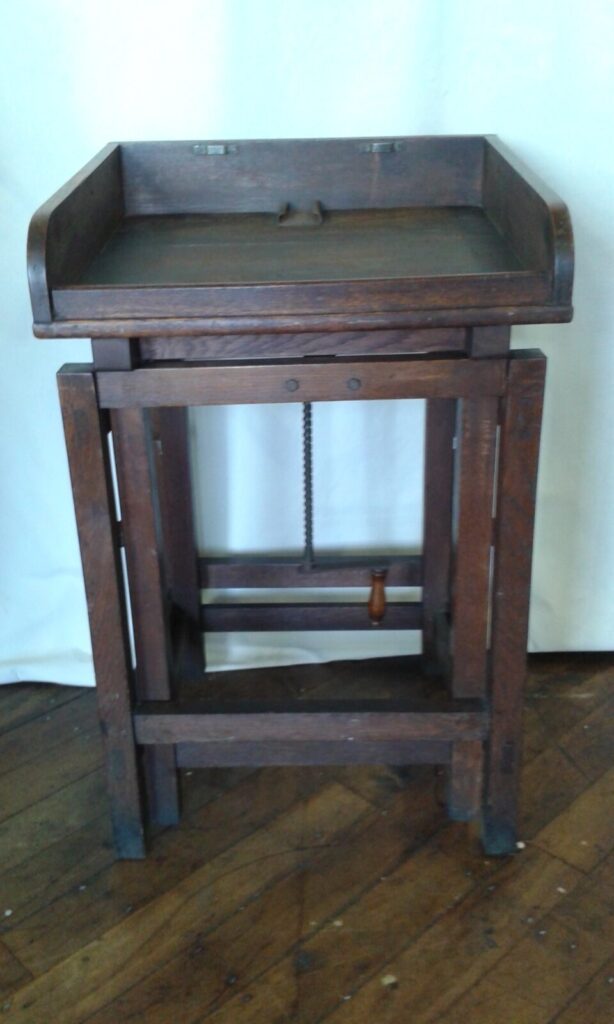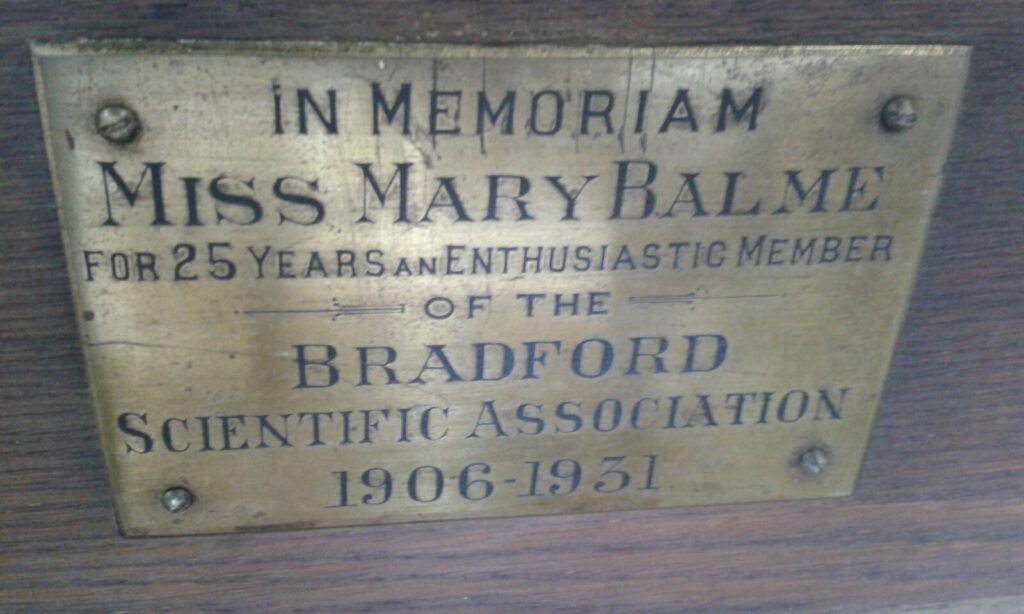We’d like to share the story with you of one of the objects that will soon be on display as part of a forthcoming exhibition at the Bradford Industrial Museum – Bradford’s War: 1914-1918
It was donated to Bradford Industrial Museum in 1986 by Miss E Richardson, of the Bradford Scientific Association. It’s a wooden adjustable reading desk dedicated to ‘Miss Mary Balme’.
The Scientific Association began life in 1877 and met at the Mechanics Institute, (later Bradford University), to discuss all matters of scientific interest, from natural history to the ill effects caused to the body by smoking!
When Mary joined the society in October 1906 there were few female members and on that day, the first female officer of the society, a Miss Johnsone BSC, was sworn in.
Female members subscription was half that of men’s at 2s 6d per year, in light of the fact they would have less income and that few would be able to attend regular evening meetings due to ‘responsibilities at home’.
Nevertheless, women were beginning to campaign for the vote and female membership steadily rose, especially during the First World War.
By the time Mary died in 1931, aged 81, her subscriptions were fully paid and she left a legacy of £17 – 7-3 to the BSA. The members voted to create a memorial with the money and had a desk made for the mechanics institute. A letter of condolence was proposed but no relatives could be located.
Most of the female members leaving the society have either ‘deceased’ or ‘married’ next to their name crossed out in the ledger, which shows many still had to choose between their scientific interests and having a family.
Who was Mary?
In the 1887 census she is recorded as living at Blake Hill Cottage in Idle, aged 37 with her Father Matthew and Maternal Aunt Miss Priestley, who is likely to have provided her education.
Matthew Balme was a registrar of births marriages and deaths, and had come from Tong Village. He campaigned with Lord Shaftesbury and Richard Oastler to improve conditions for factory workers, and particularly children in Bradford to pass the Ten Hour Bill through Parliament.
What seems to have persuaded Matthew to fight this cause is his experiences in Tong as a child when his own Father is named on the Poor Law Board of Guardians in the 1790s, indenturing children from the workhouse and taking illegitimate village children to become ‘apprentices’ in Bradford Mills.
The experience of some indentured child workers, captured in the recent Channel 4 Drama ‘The Mill’, must have had a lasting effect on Matthew and his Daughter Mary, who also campaigned for child welfare and social change in her city.
More details on the exhibition can be found here

